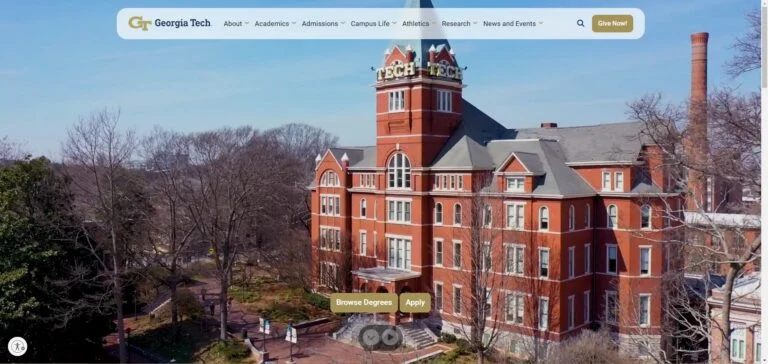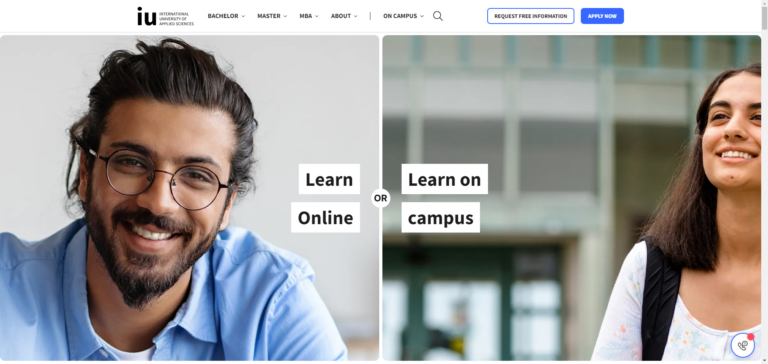The Power of Experiment-Based Education: Fostering Creativity, Critical Thinking, and Lifelong Learning

Education is the cornerstone of human progress and development, and it continually evolves to meet the changing needs of society. In recent years, there has been a growing emphasis on experiment-based education as a powerful and innovative approach to learning. This educational methodology places a strong emphasis on hands-on, active learning and encourages students to engage in experimentation, problem-solving, and critical thinking. Experiment-based education not only equips students with knowledge but also cultivates essential skills and qualities, such as creativity, adaptability, and a love for lifelong learning.
What Is Experiment-Based Education?
Experiment-based education is an approach that prioritizes learning through direct experience and practical engagement rather than passive absorption of information. It is a departure from traditional lecture-style teaching, where students are predominantly passive recipients of knowledge. Instead, it fosters a more interactive and dynamic learning environment.
Key elements of experiment-based education include:
- Hands-On Learning: In this approach, students actively participate in experiments, projects, simulations, and real-world applications. They learn by doing, which deepens their understanding and retention of the subject matter.
- Critical Thinking and Problem-Solving: Students are encouraged to analyze, question, and solve problems independently. They develop the ability to think critically, which is a valuable skill for addressing complex issues in the real world.
- Interdisciplinary Learning: Experiment-based education often integrates multiple subject areas, emphasizing the interconnectedness of knowledge and real-life challenges. This approach promotes a holistic understanding of complex problems.
- Active Engagement: It encourages students to take initiative and ownership of their learning. They set goals, explore areas of interest, and experiment with various solutions to problems.
- Real-World Relevance: This educational model strives to make learning relevant to students’ lives by connecting classroom concepts to real-world applications. It helps students see the practical value of what they learn.
Benefits of Experiment-Based Education
- Fosters Creativity: Experiment-based education nurtures creativity by allowing students to explore, experiment, and come up with their own solutions to problems. It encourages them to think outside the box and be innovative.
- Promotes Lifelong Learning: By instilling a sense of curiosity and self-directed learning, this approach equips students with the skills and mindset to continue learning beyond the classroom. Lifelong learners are better prepared for the challenges of an ever-changing world.
- Enhances Retention: Hands-on learning and active engagement significantly improve knowledge retention. Students are more likely to remember and understand what they have learned through direct experience.
- Develops Critical Thinking Skills: Experiment-based education sharpens critical thinking and problem-solving skills, which are essential for success in both academic and professional settings.
- Prepares for the Real World: By connecting learning to practical applications, students are better prepared for the challenges and complexities of the real world. They can apply their knowledge and skills in various contexts.
- Builds Confidence: Taking an active role in their education and successfully solving problems builds students’ confidence in their abilities. This confidence can carry over to other aspects of their lives.
Implementing Experiment-Based Education
Implementing experiment-based education requires a fundamental shift in the way we approach teaching and learning. Educators need to adopt a student-centered approach, creating an environment that supports exploration, inquiry, and experimentation. Some key strategies for implementing experiment-based education include:
- Curriculum Redesign: Curriculum should be designed to incorporate hands-on activities, projects, and opportunities for students to explore and experiment. This could involve creating labs, projects, or field experiences.
- Teacher Training: Educators must be equipped with the skills and knowledge to facilitate experiment-based learning effectively. This includes understanding how to guide students in their exploration, provide necessary resources, and assess their progress.
- Resources and Infrastructure: Schools should invest in the necessary resources, materials, and infrastructure to support experiment-based education. This might involve building labs, acquiring equipment, and providing access to technology and tools.
- Assessment and Evaluation: Assessment methods should be adapted to evaluate students’ learning in this context. Traditional testing may not always be the best measure of their knowledge and skills.
- Collaboration and Interdisciplinarity: Encouraging collaboration among educators and integrating different subjects or topics in the curriculum can create a richer learning experience.
- Community and Industry Engagement: Partnering with local communities and industries can provide students with opportunities for real-world applications and experiential learning.
Challenges and Considerations
While experiment-based education offers numerous benefits, it is not without challenges. Some considerations include:
- Resource Constraints: Schools and educators may face limitations in terms of funding, time, and access to materials needed for hands-on learning.
- Standardized Testing Pressure: The prevalence of standardized testing can make it challenging to adopt an approach that values critical thinking and creativity over memorization.
- Teacher Training: Preparing educators for experiment-based education can be time-consuming and resource-intensive.
- Assessment Complexity: Developing effective methods to assess and evaluate students’ learning in this context can be challenging.
Conclusion
Experiment-based education is a dynamic and innovative approach that holds great promise for preparing students for success in an ever-evolving world. By emphasizing hands-on learning, critical thinking, and creativity, it equips students with not only knowledge but also the skills and mindset needed for lifelong learning and adaptability. While challenges exist, the benefits of this approach are substantial, and it has the potential to revolutionize the way we educate future generations, ultimately leading to a more curious, creative, and capable society. As we continue to explore and refine experiment-based education, we move closer to a future where learning is a lifelong adventure filled with exploration and discovery.
Listings Related to the Article: The Power of Experiment-Based Education: Fostering Creativity, Critical Thinking, and Lifelong Learning
Georgia Institute of Technology
The Georgia Institute of Technology (Georgia Tech) is a leading public research university located in Atlanta, Georgia. Known for its innovative programs in engineering, computing, business, and design, Georgia Tech combines cutting-edge research with a commitment to hands-on learning. With a strong emphasis on technology and entrepreneurship, Georgia Tech prepares students to tackle global challenges and drive innovation across industries.
- Category
- Reference » Education » Colleges and Universities
IU International University of Applied Sciences
IU International University of Applied Sciences offers a diverse range of internationally accredited degree programs, providing students with the opportunity to pursue their academic goals online from anywhere in the world. With a focus on practical application and innovative learning methods, IU empowers students to thrive in today’s globalized workforce.
- Category
- Reference » Education » Colleges and Universities
Domestika
Domestika stands as the premier creative hub, offering online courses instructed by top professionals in the realms of design and creativity. Immerse yourself in learning and collaborative sharing from any location.
More Articles Like: The Power of Experiment-Based Education: Fostering Creativity, Critical Thinking, and Lifelong Learning
Understanding PageRank: The Algorithm that Shaped Web Search
PageRank, developed by Google’s co-founders Larry Page and Sergey Brin, is a groundbreaking algorithm that revolutionized web search by providing a systematic and efficient way to rank web pages. Initially introduced in the late 1990s, PageRank played a pivotal role in making Google the dominant search engine it is today. This article delves into the […]
Understanding Apache Cordova
Apache Cordova, formerly known as PhoneGap, is an open-source mobile development framework that enables developers to build mobile applications using web technologies such as HTML, CSS, and JavaScript. It allows for the creation of cross-platform mobile applications, meaning a single codebase can be used to deploy apps on multiple mobile platforms, including Android, iOS, and others. Apache Cordova […]
The Evolution of Libraries: Are They Still Relevant in the Digital Age?
Libraries have long been regarded as the cornerstone of education and knowledge dissemination. Traditionally, these institutions housed an extensive collection of books, providing communities with access to a vast reservoir of information. However, as we navigate the ever-changing landscape of the digital age, the relevance of libraries has come into question. In this article, we’ll […]






